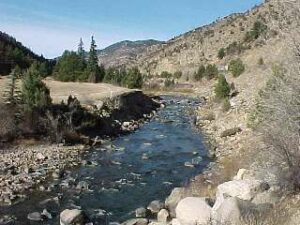Tinges of regret about the ecological effects of land use need to surface as part of the sustainability conversation.
More Americans who are telling their stories now do so with a degree of regret. With the effects of climate change more likely to be top of mind, there seems to be some useful shame associated with family histories built around various extractive industries. Celebrations of vaunted “American initiative” from generations ago can now sound foolish, given increased awareness of the true costs tied to the exploitation of natural and sometimes human resources. Mining, oil and gas production, farming, quarries and logging are probably the most common reference points. But we also have internet businesses that use up precious social capital by abusing the trust of others. Think of social media like Facebook, click-bait scams, or the selling of personal information gleaned through online selling.
True, it is easy to quarrel with Shakespeare’s famous line that “The sins of the father are to be laid upon the children.” Still, we would like our own family albums to be free of relatives who were rapacious exploiters of the land or its inhabitants.
Financially Successful and Ecologically Disastrous.
There are, of course, the worst of the worst: generations of slave traders and owners, or religious and political leaders who carried out the forced removal of ethnic and indigenous families. But I am thinking of less dire personal histories that include discussions of land-use practices that violate the newer norm to tread lightly on the earth. Thankfully, the rhetoric of professionals in ecologically sensitive fields is now more likely to include their own misgivings about earlier work in extractive industries. For example, several recent authors have lamented their employment in organizations that have left scars on millions of acres of forest land. Suzanne Simard’s Finding the Mother Tree (2021) and Peter Wohlleben’s The Hidden Life of Trees (2015) each contain their authors’ regrets about the kind of forestry they were required to do for various governmental agencies. Both argue for a more wholistic approach to forestry, mostly as a repudiation of the industrialized tree farming. In Simard’s case, some of the organizational practices she witnessed included clear cutting complex old growth forests to make room for monocultures of non-native and quick growing money trees. “I come from a family of loggers,” she notes, but “with taking something comes the obligation to give back.” Her heartbreak over reckless forms of tree removal sometimes came down to the taking of a particular “Mother” tree in one of Canada’s arboreal forests.
We have yet to hear much from those whose family wealth has come from natural gas fracking, mountaintop removal for coal, or the squandering of natural aquifers. And there are many additional industries that have been financially successful and just as ecologically disastrous.

I cringe now to note that some in my own family several generations ago were engaged in silver mining in Colorado, which optimistically might have meant only tunneling within a mountain. But other methods of extraction were much more destructive. Hydraulic mining for gold, for example, blasted creek beds with high pressure water to expose tiny nuggets of valuable metal. Mammoth hills of rock and oceans of slag water were created for just a few ounces of the metal. If nature had been allowed to run its course, mountain streams like Clear Creek west of Denver, should still have rugged but vegetated banks, As it is, many spots along the river are vegetative dead zones with piles of grey river rock that can sustain very little.
More than ever, we need biographies of regret to be part of the climate- change discussion. They have the power to bring our attention to the worst of these practices.
![]()

